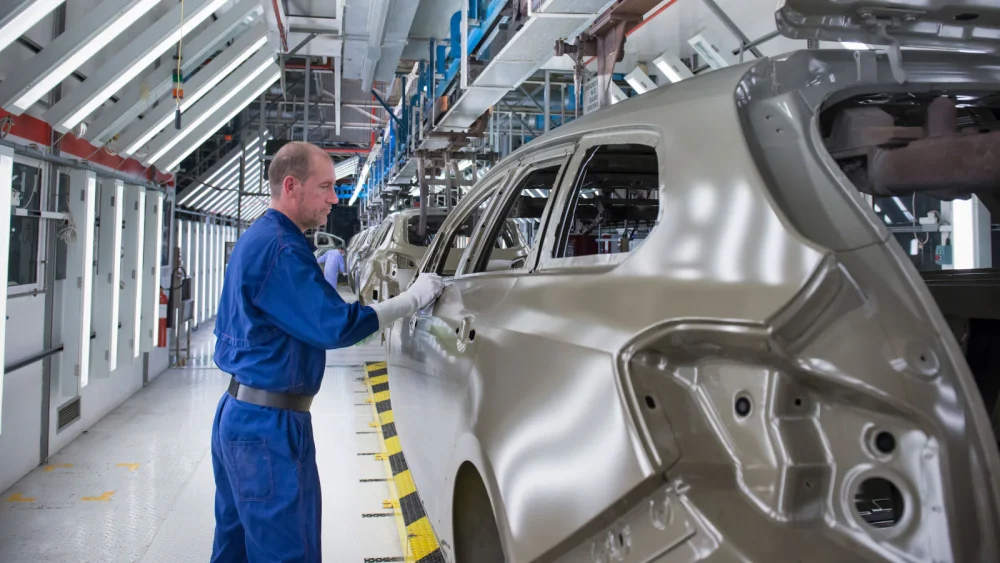The auto industry has transformed human civilisation in ways few other inventions have. From the early days of steam-powered vehicles to the era of smart cars powered by artificial intelligence, the story of the automobile is one of constant reinvention. The word auto itself symbolises independence, convenience, and mobility, shaping economies, cities, and lifestyles across the globe.
In this article, we’ll explore the rich history, technological advances, cultural impact, and future possibilities of the auto industry.
The Origins of the Automobile
The journey began in the late 18th and 19th centuries when inventors experimented with steam and early combustion engines. Although steam carriages were bulky and impractical, they laid the foundation for the internal combustion engine, which eventually revolutionised transport.
Key Milestones in Early Development
-
1769: Nicolas-Joseph Cugnot built the first steam-powered vehicle in France.
-
1885: Karl Benz patented the first petrol-powered car, the Benz Patent-Motorwagen.
-
1908: Henry Ford introduced the Model T, making cars affordable through mass production.
These innovations not only made vehicles more accessible but also fuelled industrial growth and employment opportunities.
The Rise of the Mass Automobile Culture
The early 20th century saw cars become more than just machines; they became symbols of freedom and social status. Roads, highways, and urban planning evolved to accommodate this new culture.
Social and Economic Impact
-
Expansion of suburbs, as people could commute easily.
-
Creation of millions of jobs in manufacturing, sales, and repair.
-
Rise of petrol stations, motels, and roadside businesses.
By the mid-20th century, cars were no longer luxuries but essential household items.
Technological Innovations That Changed Driving
Every decade brought breakthroughs that reshaped the auto industry.
Safety Enhancements
-
Seat belts, airbags, and anti-lock braking systems reduced accident fatalities.
-
Crash testing and safety regulations improved vehicle reliability.
Comfort and Convenience
-
Power steering and automatic transmissions made driving effortless.
-
Air conditioning, heating, and infotainment systems enhanced comfort.
Efficiency and Performance
-
Fuel injection systems replaced carburettors, boosting efficiency.
-
Turbochargers and hybrid systems pushed performance while reducing emissions.
These improvements turned cars into not only transport tools but also lifestyle companions.
Environmental Challenges and the Push for Green Cars
While automobiles transformed societies, they also brought challenges. Rising emissions, urban congestion, and dependence on fossil fuels created urgent environmental concerns.
Eco-Friendly Developments
-
Hybrid vehicles combine petrol engines with electric motors for efficiency.
-
Fully electric cars reduce direct emissions and reliance on fuel.
-
Lightweight materials and aerodynamic designs lower fuel consumption.
Governments worldwide are investing in sustainable transport, with policies encouraging renewable energy integration and eco-friendly designs.
The Smart Car Era
The most exciting chapter in the auto story is unfolding today. Modern vehicles are no longer defined only by horsepower and fuel efficiency, but by intelligence, connectivity, and automation.
Features of Smart Cars
-
Advanced Driver Assistance Systems (ADAS): Includes lane-keeping, adaptive cruise control, and collision detection.
-
Connectivity: Integration with smartphones, navigation apps, and remote control features.
-
Self-Driving Technology: Artificial intelligence and sensors enabling autonomous driving.
Smart cars are reshaping how we think about commuting, road safety, and even vehicle ownership models.
The Role of Artificial Intelligence
Artificial intelligence has become the backbone of next-generation vehicles. From predictive maintenance to traffic optimisation, AI is redefining efficiency.
-
AI-powered navigation reduces travel times by avoiding congestion.
-
Predictive algorithms monitor wear and tear, scheduling timely maintenance.
-
In-car voice assistants enhance user interaction without distracting drivers.
This synergy of technology and mobility brings us closer to a future where cars may drive themselves entirely.
Cultural and Lifestyle Shifts
The auto is more than a machine; it is part of human identity. From classic road trips to car enthusiast clubs, vehicles influence fashion, entertainment, and art.
-
Cars are status symbols reflecting personal taste and success.
-
Motorsport events drive innovation and inspire fan communities.
-
Films, music, and advertisements celebrate cars as icons of freedom.
The car is not just about movement; it is about expression.
Future Outlook: Where the Auto Industry is Heading
The industry is undergoing unprecedented changes, with electrification, automation, and sustainability driving innovation.
Predictions for the Next Decade
-
Increased adoption of electric vehicles as charging networks expand.
-
Growth of shared mobility services reducing the need for ownership.
-
Integration of renewable energy sources into vehicle charging.
-
More stringent government policies on emissions and safety.
The automobile’s role will continue to evolve, but its significance in shaping modern civilisation remains constant.
Frequently Asked Questions (FAQ)
Q1: What is the difference between a hybrid car and an electric car?
A hybrid car uses both a petrol engine and an electric motor, while an electric car runs solely on electricity stored in rechargeable batteries.
Q2: Are self-driving cars safe to use on public roads?
Self-driving cars are still in testing stages. While they show great promise, current models require human supervision. Safety improves as AI systems gather more real-world driving data.
Q3: How will electric cars impact traditional fuel industries?
The rise of electric cars may reduce global demand for petrol and diesel over time, pushing fuel industries to diversify into renewable energy and alternative technologies.
Q4: Do smart cars cost more than traditional vehicles?
Smart cars generally have a higher initial cost due to advanced features. However, they often reduce long-term expenses with fuel savings, fewer breakdowns, and improved safety.
Q5: Can classic cars still be driven in a future dominated by electric vehicles?
Yes, but some cities may restrict older, high-emission vehicles. Many enthusiasts are converting classic cars to electric power to preserve heritage while meeting regulations.
Q6: What challenges do electric cars face in colder climates?
Battery efficiency tends to drop in extremely cold conditions, which can reduce driving range. Solutions include improved battery technology and pre-conditioning systems to warm the battery before use.

